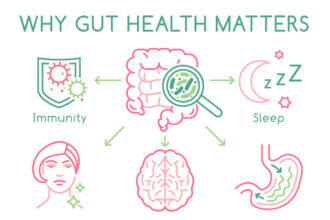New research published in the Journal of the American Heart Association has revealed that U.S. adults aged 65 and older with high blood pressure, stroke, or heart failure are experiencing marked declines in cardiovascular health. The study analysed cardiovascular health scores derived from the American Heart Association’s “Life’s Essential 8” framework, which measures eight behaviours and health factors considered critical to heart and brain health: diet, physical activity, smoking, sleep, body mass index, cholesterol, blood sugar, and blood pressure. The results suggest that older adults with pre-existing cardiovascular disease consistently fared worse in maintaining optimal scores compared with their peers without such conditions.
The analysis was based on data collected from 2013 to 2018 through the U.S. National Health and Nutrition Examination Survey (NHANES), representing a sample of 3,050 adults that equated to population-level estimates for nearly 38 million older Americans. Researchers found that people with no history of cardiovascular disease had an average cardiovascular health score of 68 out of 100. In contrast, individuals who reported one or more cardiovascular conditions averaged scores below 60, with health further declining as the number of conditions increased. By condition, scores dropped by 4.1% for those with high blood pressure, 11.5% for those with a history of stroke, and 15.2% for those living with heart failure over the study period.
One of the most striking findings was the disparity in physical activity and blood pressure measures. According to lead author James M. Walker, a fourth-year M.D./M.B.A. student at Northwestern University, participants with cardiovascular disease typically had significantly lower scores in these categories. On average, adults with at least one cardiovascular disease had Life’s Essential 8 scores nine points lower than those without, underscoring the disproportionate challenges older adults face in maintaining activity levels and healthy blood pressure as their conditions progress.
The researchers emphasised that these results establish a crucial baseline for understanding cardiovascular health in older adults before the COVID-19 pandemic, a period when disparities became even more evident. As Walker explained, the study was designed to highlight cardiovascular health trends before 2020 to assess subsequent shifts caused by the pandemic. The findings provide insight into the urgent need for tailored interventions, suggesting that earlier and more comprehensive support is essential to preserve health in ageing populations, especially those already diagnosed with heart disease.
Experts who were not directly involved in the study, such as Dr. Stacey E. Rosen of Northwell Health, underscored the broader implications of these findings. With the U.S. population rapidly ageing and the last of the Baby Boom generation entering retirement age within five years, the burden of cardiovascular disease is expected to grow. Rosen noted that while medical advances have enabled more people to live longer even after serious cardiovascular events, strategies to promote healthier lifestyles at every stage of life are essential. The American Heart Association continues to urge individuals to adopt Life’s Essential 8 behaviours early, ideally starting in childhood, to mitigate risks later in life.
While the study provides compelling insights, the authors caution that it has limitations. Because the analysis was cross-sectional, it cannot establish causality, and it only included six primary cardiovascular conditions, potentially excluding less common diagnoses. Nevertheless, the results strongly reinforce the importance of early, sustained lifestyle interventions, as well as continued research to monitor and support cardiovascular health in the rapidly growing population of older adults.
More information: James M. Walker et al, Comparing the “Life’s Essential 8” Scores of Older Adults Living With Cardiovascular Diseases: NHANES, 2013 to 2018, Journal of the American Heart Association. DOI: 10.1161/JAHA.124.039659
Journal information: Journal of the American Heart Association Provided by American Heart Association








